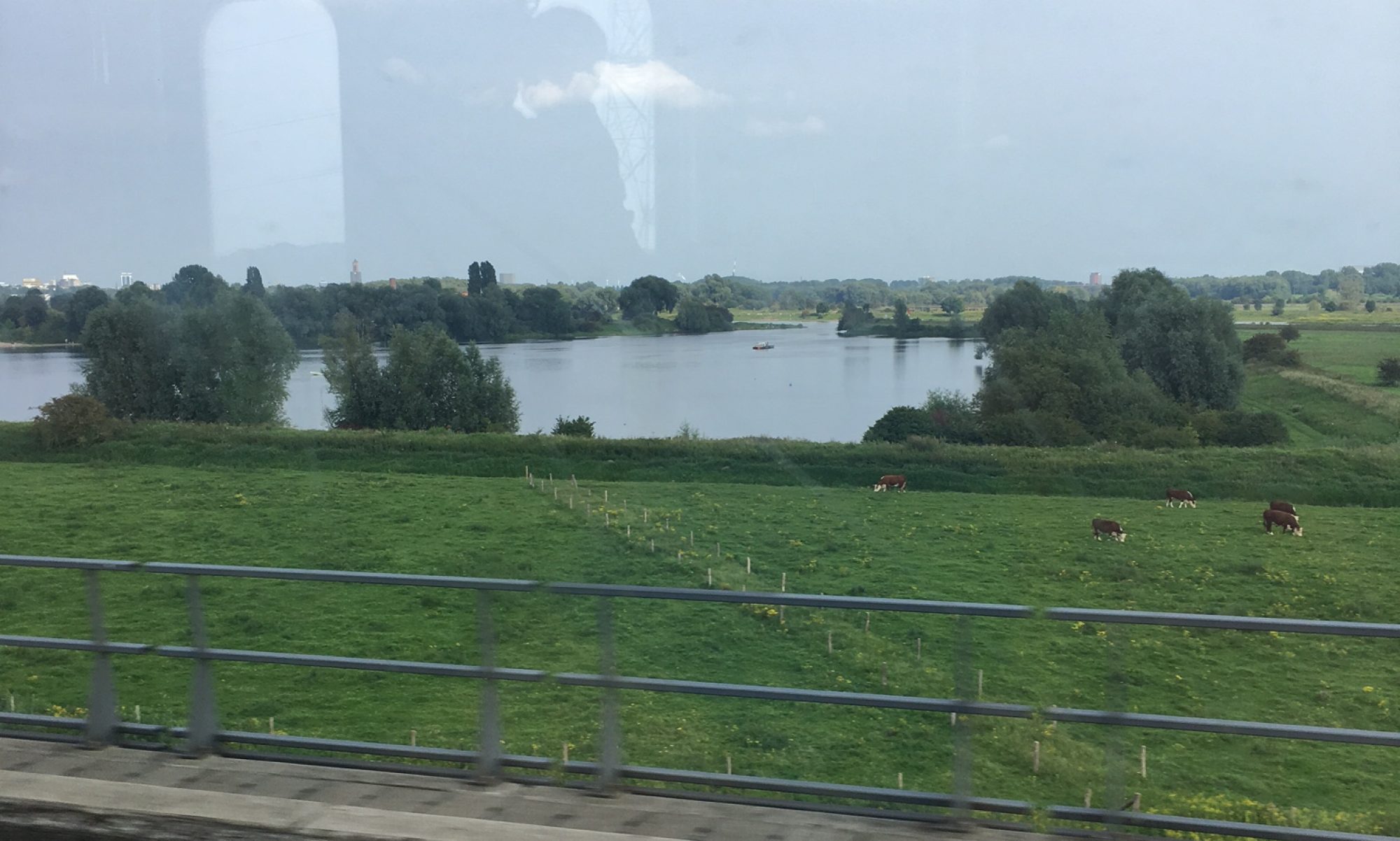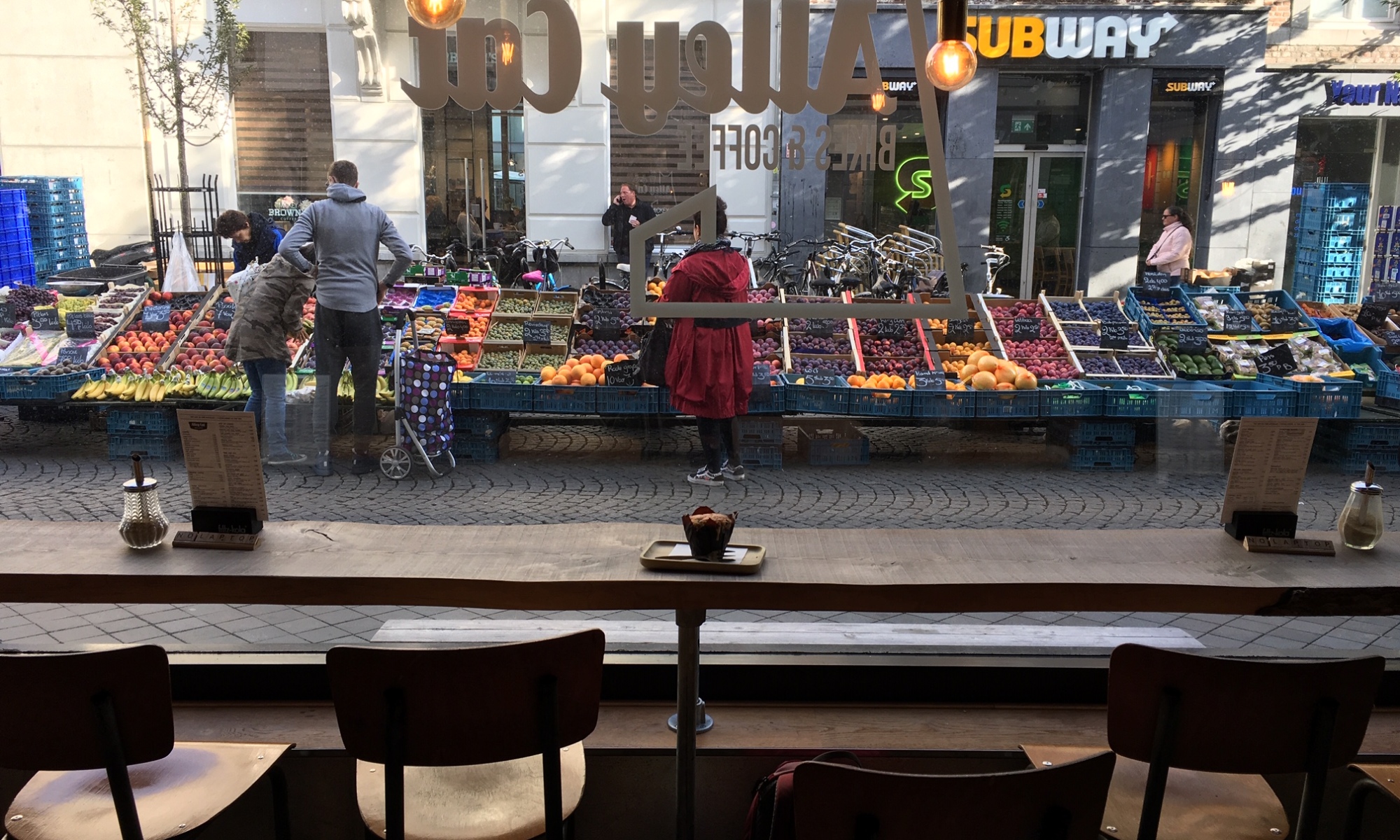As I wrote before, there’s so much familiar and beloved, and some wildly different, about being back in the Netherlands.
Some changes are a function of time. In 2017, all of the automated phone systems for service providers — the utility company, the internet provider, the tax bureau — worked by pressing a specific button from a dictated menu (“press one for customer service, two for technical support,” etc.). I very quickly learned the basic terminology and appropriate numbers, and could universally work my way to a human. In 2019, most of these systems have switched to voice recognition (“state why you’re calling”), and what I’m experiencing as voice non-recognition: None of them understand my attempts to explain in Nederlands what I need, and I’m shunted through endless loops of requests for me to repeat things, robots insisting in Dutch that they can’t understand me, and an inability to reach an English-speaking human who can help me with my wacky need (which is, I realize, a luxury in itself). The first week we were here, I became so despondent about the the bank phone system’s inability to recognize my spoken request to update my address that I went to the librarian and begged her to just speak “update address” into my cell phone. Which she did, and which the system promptly recognized and accepted.
Some changes, probably the most critical ones, are functions of geography. We no longer live in the secular, standard Dutch-speaking middle or north part of the country. Maastricht is the Catholic south, not unlike the American south in some ways: more conservative, but also more relaxed, somewhat French or Italian in its approach to things. The food is better. There are more sidewalk and terrace cafes that you could ever visit in two years of Sundays (if we were at a stage in life with kids that we could frequent sidewalk cafes on Sundays). People are kind, but seem like they take awhile longer to get to know — we haven’t made a single Dutch friend yet. Also there are so many expats in Maastricht that I suspect the true locals keep to themselves as a way of keeping the expat invasion (and English invasion) at arm’s length. Last week I walked into a pilates studio, and the owner asked me, “Oh, are you that woman who just moved here from Maine?” Turns out she’s American, and my next-door neighbor, who’s Canadian, had mentioned to her that a new family from Maine had arrived. I loved the small town feeling — and realized that we could stay cloistered in an expat bubble for the entire time we’re here, if we don’t seek out relationships with Limburgers and Maastrichters. (Although I’ve had interesting, extensive conversations with the garbageman, the woman who runs the chocolate shop, and a new babysitter, and although people want to share their opinions on everything from how Maastricht has changed to who they consider the “bad people” in town to Trump, none of them are going to invite us over for dinner or connect with me on Whatsapp.)
And now for an aside, because the above may be somewhat inexplicable: 1) For the most tolerant society in the world, the Dutch can be surprisingly judgmental and even, dare I say this out loud, bigoted. This might be more the case in the conservative south, but I’ve already heard a few references by well-spoken, reasonably educated people to the “kinds of people” who live in “bad neighborhoods” (the American equivalent would be trailer parks) and “cause all kinds of problems.” It’s not just xenophobia, as plenty of these people they’re talking about are Dutch non-immigrants. 2) Maastrichters also won’t invite us to dinner because Dutch people don’t invite people to dinner, because it creates a lot of cooking work and is expensive. Still, they gladly do tea or coffee, but…probably not with us, unless we can find a way in to help people trust us. End aside.
The biggest difference that I’m struggling with, though, is the language. I’ve had a few moments of despair these last few days, realizing that my limited Nederlands (which I’ve leaned back into studying with some force) may do me very little good in this region, at least for conversational purposes. The local dialects are so profoundly different from northern Dutch that I’m finding them, as my northern friends warned me, almost unintelligible. Not only is there a local Maastricht dialect, either. There are distinct dialects for each of the small towns and mini-regions around here, plus an entirely different language called Limburgish that I can barely discern when it’s being spoken. (Not what’s being said, just that it’s not Dutch.) Two nights ago we had a package delivered. I was listening for “goedenavond” from the delivery fellow — roughly pronounced, in the north, “HOO-den-a-vond,” with a gutteral “g” sound. What came at me was something like “hoo-ey-a-VOIND,” leaving me standing like a rude foreigner (which clearly I was), tongue twisted, trying to validate what I’d heard but also not wanting to deliver northern Dutch back to him.
So many people have corrected me in casual interactions already. It’s not that they’re struggling to understand me — they just think I’m wrong, speaking like a northerner. I was saying “blauwe bessen” (blueberries) to Orri, and the babysitter jumped in to correct me with a pronunciation of the same word that was so far off, it seemed barely in the same gene pool. She didn’t want me polluting Orri’s emerging Dutch with my northern pronunciations. That’s not real Dutch. “But it IS!” I wanted to cry. My real question is: How am I going to learn this language when it’s a moving target — when all of the books and materials and Duolingo and Google Translate promote a standard northern dialect that people here find wrong, much less downright offensive? Such are the problems of language learners all over the globe. And I’m sure that the flattening standardization and canonization of northern Dutch must be such a giant rub for southerners — practically colonizing. And yet…having some standard, rather than a wildly moving target, feels essential.
Here’s what I can do in Dutch, with roughly 18 months of exposure and variable study: I can read a mean tax letter. (There are SO MANY of them, and so many opportunities to practice, and the stakes are very high.) I can navigate a phone tree that doesn’t require speaking. I can decode a grocery store or market interaction, mostly. I can shop for what I want and mostly understand the options, how they’re categorized, where to find things, what to expect. I can sing and roughly understand a number of children’s songs. I can generally understand and speak to toddlers at the playground (but not school-aged children, whose skills far outstrip mine). I can read signs and advertisements, navigate public transportation, decode snatches of overheard conversation and discern the topic, and do many, many patterned things. The grammar and constructions are making more sense to me. Sometimes, for just a moment, I can look at something in Dutch and not realize I’m apprehending Dutch.
But here’s what my beloved monolingual American friends don’t understand: I’m unlikely to ever be fluent in Dutch. No matter how much devoted, years-long, headlong study and commitment is made, it’s still probably not going to be enough to achieve real fluency (especially with this accent). Perhaps I could pass a citizenship test, and the first few levels of the international language assessments (A level, B1, etc.). But that’s not the standard that I’m shooting for, as a smart man I know wrote in a book called Babel No More. What I’m shooting for is the ability to build relationships, even limited ones, in Nederlands. For longer and longer intervals where I don’t realize that I’m apprehending Dutch, before English kicks in. What I’m really shooting for is cultural and linguistic swiftness, the points where you feel less like a foreigner and more like you can apprehend the context and even the nuance — spoken and unspoken. For the moments where you’re briefly not a dumb foreigner, and you can gauge with confidence that you’re in the right place, participating in the system, offering something akin to what you’re taking, humble but not verging on humiliated about just how much you can’t discern. That sounds harsh, but it’s not: I know that there’s a sweet spot when you feel more at home, where the context feels clear, where you can navigate variances with a core model of the norms intact. We’re not in that sweet spot yet, despite our previous year in the Netherlands. We might not be for awhile. Probably there are multiple sweet spots on a horizon that’s more than a year long. I am looking forward to tasting them.

